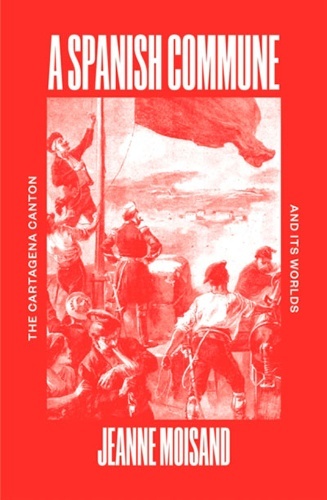A Spanish Commune
The Cartagena Canton and its Worlds

Editorial Verso Books
Fecha de edición octubre 2025 · Edición nº 1
Idioma inglés
EAN 9781804292242
368 páginas
Libro
encuadernado en tapa blanda
Dimensiones 153 mm x 234 mm
Resumen del libro
The Paris Commune had a little Spanish sister, the Canton of Cartagena, whose impressive and neglected history is unearthed in this book. In July 1873, thousands of men and women proclaimed a Commune, or "Canton", in the south-eastern Spain military port of Cartagena. Their aim was to build a federal Republic 'from below', while refusing to be sent to the colonial war in Cuba as soldiers or sailors.
Confronted by the regular army and the intervention of the British Navy, they resisted for six months before finally surrendering in January 1874. This book shows the importance of this cantonal episode in the history of socialism and colonial emancipation. It gives a voice to categories neglected by the major accounts of the workers' movement's history: peasants, workers from southern Europe, conscripts and working-class women.
It reveals unsuspected links between the Spanish drive towards a federal and social republic and the imaginaries of Atlantic abolitionism, and of workers' internationalism. It thus places Spain and its empire at the heart of the global history of revolutions.
Biografía del autor
Es profesora de Historia Contemporánea en la Universidad París 1 Panteón-Sorbona e investigadora en el CRALMI (Centre de recherche sur lx{0026} x02019;Amérique latine et les mondes ibériques)/Mondes américains (EHESS-UMR 8168). Es autora de Scènes capitales. Madrid, Barcelone et le monde théâtral fin de siècle (Casa de Velázquez, 2013). También publicó con Fabrice Bensimon y Quentin Deluermoz x{0026} x02018;Arise ye Wretched of the Earth.x{0026} x02019; The First International in a Global Perspective (1864-1888) (Brill, Studies in Global Social History, 2018). Y es coautora con Delphine Diaz, Romy Sánchez y Juan Luis Simal de Exils entre les deux mondes. Migrations et espaces politiques atlantiques au XIXe siècle (Mordelles, Perséides, 2015).








